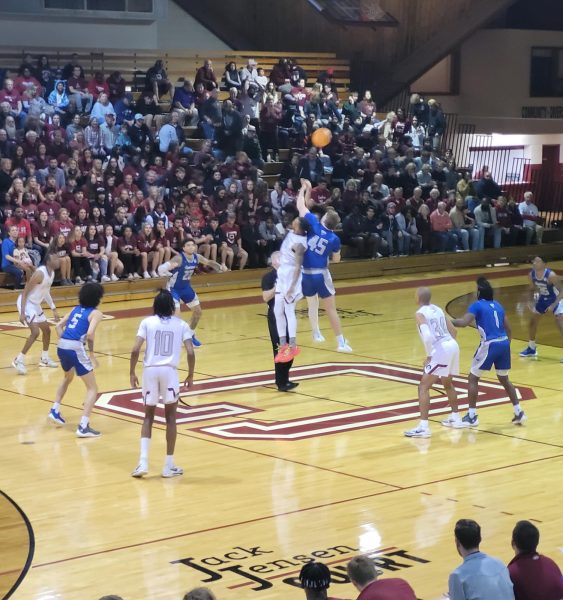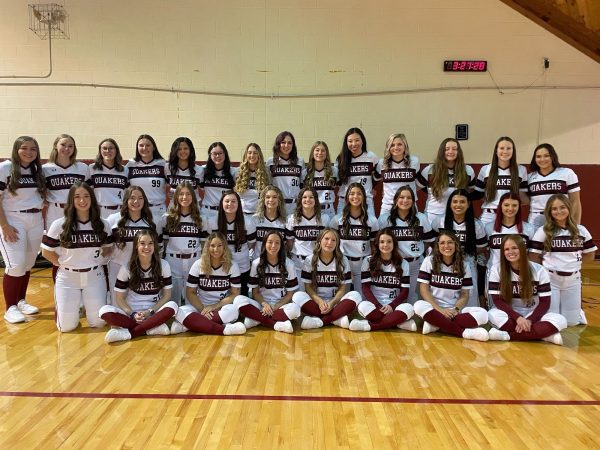Australian national soccer adresses gender pay gap
Australia’s soccer governing body reached an agreement to provide an equal amount of revenue and treatment for its male and female soccer teams. This display of gender equality is a crucial step for getting rid of sex discrimination in athletics all around the globe.
Gender pay gaps have existed since both men and women started working, and it is known as both a problematic and widely contested issue. From filmmaking to sports, inequalities have consistently been pointed out in cases where women, who put in the same amount of work as men, earn significantly less.
“I definitely don’t agree with them, I don’t appreciate them, because you’re doing the same amount of work,” said junior Sonya Brunk, who is a setter and defender on Guilford’s women’s soccer team, about gender pay gaps.
“It doesn’t make any sense as to why there would be a difference,” she added.
This conundrum has been highlighted in Australia’s top soccer teams, the Westfield Matildas (women’s team) and the Caltex Socceroos (men’s team). Over the past couple of years, according to the National Public Radio, the Matildas have performed well internationally. They made it to round 16 in the 2019 Women’s World Cup, and were eliminated due to penalties.
On the other hand, the Socceroos finished last in their group for the Men’s Cup in 2018. Despite the fact that the Matildas have shown better performance than their male counterparts, they have always been paid less than the Socceroos.
However, earlier this week, a landmark deal was made. The Football Federation Australia (FFA) and Professional Footballers Australia (PFA), both Australian soccer governing bodies, agreed to a four year Collective Bargaining Agreement (CBA) that will last until 2023.
According to the PFA, the highlights of this deal include partnership, gender equality and investment in youth football. In terms of income under the agreement, players will now be paid what their work and value create for the FFA.
This means that, instead of making an annual salary of $38,000, which was the revenue for this year, the Matildas will now make about $57,000 in 2020, according to the NPR.
The CBA also improves other conditions for the Matildas. They will now be offered business class in international travel, provided with higher-quality coaching and operational support and be given performance-based sponsor bonuses, which have always been standards granted to the Socceroos.
Gender discrimination is not only present in professional teams, however. Many female soccer players at Guilford have experienced this distinction first-hand throughout their careers.
“In high school, our boy’s team would get better equipment. We’d usually get hand-me-downs … things they thought weren’t good enough for them anymore,” said Brunk.
Brunk explained how no efforts to change the treatment were made, which may have been due to the fact that their coach was male and didn’t recognize the discrimination.
Other players elaborated on their experiences with gender discrimination in Guilford’s athletics.
“Playing at a D-III College, I can see how it’s not just the national team that’s unequal,” said Lizzy Barnes, a junior and midfielder on Guilford’s women’s soccer team.
Along with better practice times and more equipment, Barnes also mentioned how, during warm-ups before home games, Guilford seems to treat the men’s and women’s teams differently.
“They play music over the loudspeakers, and they always turn it down to a soft level whenever we’re warming up … they always have excuses for why they can’t turn it up,” said Barnes.
There is a drastic difference in men’s games, though, and Guilford College seems to have no problem with turning the music up for them, according to Barnes.
“It’s always super loud. I can hear it across campus,” said Barnes.
Overall, Australia’s CBA gives hope to other parts of the world where gender pay gaps continue to exist.
“They’re playing the same sport, and even if they’re more popular than the men’s, they’re still not getting the money for it,” said Kate Glenn, a junior and wingback on Guilford’s women’s soccer team.
“It’s just frustrating to see young women looking up to these older women playing soccer (and realizing) that they’re not getting the same benefits as men,” said Glenn.
Every step that is made in the athletic community, from a nation-wide agreement to the implementation of equity on your own campus, has the potential to change the experiences of coming generations in incredible ways.










